
I Am an Actuary: September Edition
In this edition of ‘I am an Actuary’ we spotlight the journeys of six actuaries who have navigated diverse paths to find their place in the profession.
From initial uncertainty to a deep-seated passion, these actuaries share their experience across various industries, demonstrating the versatility of actuarial skills and their impact on shaping meaningful outcomes.
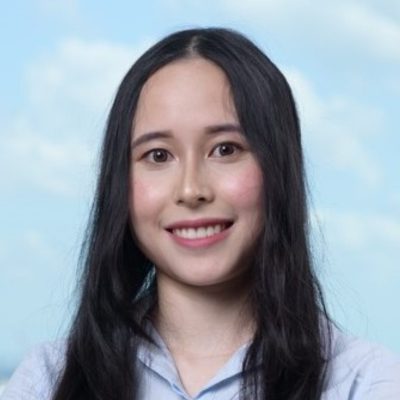 Cynthia Le
Cynthia Le
My journey to becoming an actuary began at the University of Melbourne where I quickly learned that an actuary is a “jack of all trades”.
Proficiency in accounting, finance, economics, statistics, mathematics and more was – and still is – required. To add to the challenge, actuarial internships were highly competitive and university was quite demanding but both were important for my growth.
I am grateful that I had the opportunity to complete my internship at PwC, where I worked in general insurance for a few years. There, I developed my foundational consulting and technical skills. It was an incredible experience and I met so many nice, smart people.
Now that I have transitioned to the superannuation industry, I can appreciate that actuarial skills are transferrable across various industries and professions. Taking a leap to another industry doesn’t necessarily mean starting from scratch, and I was certainly surprised by how quickly I was able to pick up contextual knowledge.
After 1.5 years of work experience in superannuation, I eventually chose Superannuation and Retirement Applications as my final Fellowship subject and, to my surprise, I won the Andrew Prescott Prize!
In my current role as an Actuarial Consultant at Mercer, my work primarily involves helping superannuation clients with insurance issues. I enjoy the mix of strategic and technical problem-solving required and, more importantly, I can see how impactful my work is in improving retirement outcomes.
I intend to keep honing my skills and improving myself as an actuary. I have a long career road ahead and there’s always more to learn but it’s good to appreciate how far I’ve come.
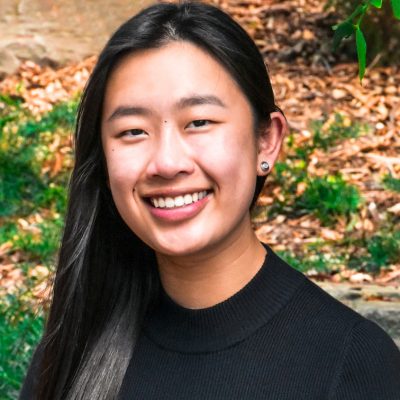 Emily Tan
Emily Tan
Becoming an actuary was not always part of the plan.
In high school, I was drawn to biomedical engineering, driven by my strong interests in mathematics and health following work experience in engineering and a hospital.
I was first introduced to the prospect of an actuarial career after a conversation with my economics teacher. At that time, all I knew was that the profession involved mathematics and economics, and it offered the constant challenge of solving problems – exactly what I wanted!
My years at university enabled me to build the technical skills needed, however, it wasn’t until my first internship at EY that I really began to understand the role of an actuary.
In their Health and Human Services team (HHS), I caught a glimpse of the impactful work of actuaries, such as redesigning the healthcare funding system for the better and understanding the profile of older Australians with diabetes to develop support options.
I also interned at Allianz in their Motor Pricing team, where I learned about the modelling and analysis required to understand customers, how to navigate competitive markets and price their insurance. Having experience in both core and emerging fields exposed me to the diverse pathways available to actuaries.
Today, I thrive on the challenges of the healthcare and government sectors, delivering actuarial solutions as a Consultant in the EY HHS team. This role provides a unique opportunity to combine my strong passions for mathematics, economics and health.
To this day, I continue to learn more about the different roles of actuaries as I work closely with the team to drive meaningful change.
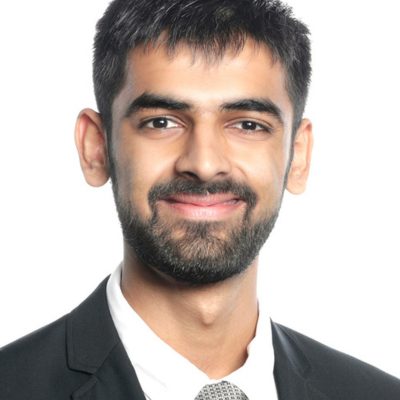 Jay Sanghvi
Jay Sanghvi
Is it possible to apply mathematics to the real world? As a high school student, this question kick-started my journey on the actuarial pathway.
I have always enjoyed maths, as it provides a medium through which to learn and express ideas clearly and precisely. I knew I wanted to pursue a career in a quantitative field and, initially, I considered computer science, engineering, or economics. The decision was challenging for me, as all these skills seemed so important in today’s world.
It was at this point that I came across an online lecture by Andrew Lee titled Actuarial Studies at University uploaded by Matrix Education. It was an eye-opening presentation of the actuarial pathway – an opportunity to become a risk professional who leverages probability and statistics to manage uncertainty. I noted it involved programming, problem-solving, and finance – a unique combination of skills I was looking to cultivate. Excited to have found a career trajectory that aligned with my interests, I enrolled in Actuarial Studies and Advanced Mathematics at UNSW.
Fast forward to today, I now work full-time as a Senior Actuarial Consultant at EY. In this role. I’m able to leverage the actuarial knowledge and training I received at university and from the Actuaries Institute’s Part II and Part III courses to help some of Australia’s largest general insurers.
Working as an actuary is yet another turning point on the actuarial pathway as we progress from theoretical exercises to high-stakes real-world scenarios. As a trusted adviser, my role involves moving beyond preparing data and creating actuarial models to understanding and interpreting the results for insightful discussions with our stakeholders. It is an exciting pathway, and I look forward to the journey ahead!
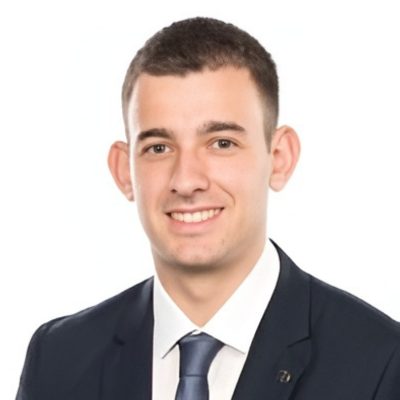 Micheal Panovski
Micheal Panovski
I’ve always been good at maths. This, combined with my love of swimming, led me to always look for ways that I could “dive” into the data to improve my lap times.
The first time I heard the word “actuary” I had no idea what it meant! My high school maths teacher Mrs. Hayes encouraged me to consider this career and gave me a crash course o the profession.
I worked part-time while attending university, helping balance my studies with real-world financial responsibilities. This gave me valuable insights into the application of actuarial principles in everyday life.
Upon graduation, I secured a role at EY. This was a fantastic place to start my career, offering a wide range of exposure to both core and emerging actuarial roles, as well as the broader financial industry.
I have had the privilege of working on diverse projects, from performing valuations and financial modelling to developing strategies for a variety of businesses, small and large. One of the most rewarding aspects of my career has been performing services that benefit the wider Australian public. The impact of our work extends far beyond the immediate business context.
Studying to become an actuary has opened a world of opportunities for me. I am grateful for the versatile skillset that this profession has provided, allowing me to excel in a number of varied roles.
Actuaries have a deep understanding of business and data that helps to ensure that our solutions are both efficient and effective. Looking ahead, I am excited to continue using my actuarial expertise to tackle complex challenges and contribute to the advancement of the profession.
Pravin Chanmugam
Growing up, I had no idea what an actuary was.
In high school, I knew I wanted a career involving maths, but engineering and science didn’t excite me. I was almost set to pursue a degree in secondary education until I learned about the actuarial career at the end of Year 11. The blend of applied maths, relationship-building, collaboration, and problem-solving intrigued me. I was also particularly drawn to the fact that the actuarial field in Australia was relatively small and felt like a niche path.
I went on to study Actuarial Studies at UNSW, where I had the opportunity to intern in Allianz’s Home Pricing team, APRA’s General Insurance Advice team, and PwC’s Actuarial Strategy team. These were formative experiences that helped me understand whether I wanted to pursue this career in the long-term. These internships also broadened my understanding of what it means to “be an actuary”, which challenged the misconception that actuaries have a limited or insignificant impact.
Since graduating from university, I have been a part of Scyne Advisory’s Actuarial & Modelling team. I’ve worked on a variety of public purpose projects, ranging from pricing and valuing accident compensation lines to developing carbon emission analytics tools, and even converting driver data to map potholes in Sydney.
I am grateful to work with a team of inspiring colleagues who are a constant source of knowledge, support and, most importantly, laughter. It is an exciting time to be in the actuarial profession and I am eager to see how it evolves in the coming years.
In the meantime, I am still searching for a simple way to explain to my friends and family what it means to be an actuary – and the longer I am in the profession, the harder it gets!
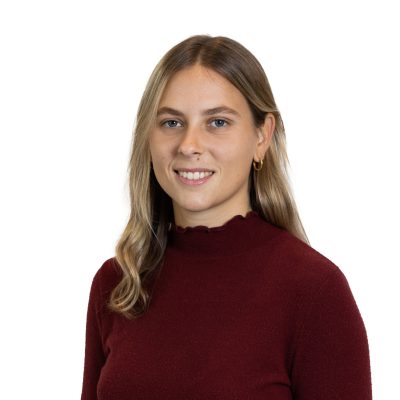 Ruby Smith
Ruby Smith
I didn’t know what an actuary was when I put it as my first university preference.
Someone told me if I liked maths, I should study actuarial studies. I checked the entry requirements, which were higher than computer science – my second choice – so I put it first and was happy for my fate to be determined.
During the first couple of years at university I still didn’t completely understand what an actuary was, despite enjoying the challenging math classes. As I started to learn that many people associated actuaries with insurance, or worse, mistook actuaries as accountants, I became shy when people asked me what I studied.
It was not until my final year of university that I started to recognise all the industries that actuaries span and the ethical responsibility that they have. I realised how important insurance is as a financial service to society; how actuaries are at the forefront of ensuring products are serving the publics needs in an ethical way and all of the other areas outside of insurance that actuaries can contribute to making a positive change. From this point on, I was loud and proud of what I did.
In 2021, I joined Deloitte’s actuarial team as a graduate, working on a range of projects in various industries. It was here that I discovered that actuaries work in the climate change space and as this was my passion and interest outside of work, I was very excited at the idea of applying my learnings in this context.
In 2022, I joined Finity’s Climate Analytics practice to see out this wish and in 2023, I qualified – it’s crazy to think how after many years at university, I’d convinced myself that I would not complete my qualification.
I am extremely grateful for all the mentors I have had along the way, whose passions have inspired my own. It is one of the beautiful quality of actuaries – they are always willing to help each other, work together and mentor others.
CPD: Actuaries Institute Members can claim two CPD points for every hour of reading articles on Actuaries Digital.






